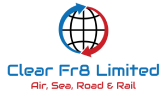How to Import from Turkey into the UK
The vibrant landscape of Turkish manufacturing beckons UK businesses with its alluring combination of competitive advantage, diverse offerings, and geographical proximity.
From the bustling textile mills to the high-tech automotive factories, Turkey presents a treasure trove of opportunities for astute importers. However, navigating the intricacies of cross-border trade demands meticulous planning and expert guidance.
This comprehensive guide equips you with the knowledge and tools to chart a successful path from Turkish shores to UK shelves, empowering you to transform from novice importer to seasoned trade virtuoso.
Importing From Turkey Requirements:
Pre-Import Planning: Laying the Foundation for Success
Before venturing into the vibrant bazaar of Turkish suppliers, thorough preparation is paramount.
- Market Analysis: Identify the specific product you wish to import, meticulously analyzing its potential in the UK market. Will it fill a niche or compete in an established category? This crucial market research guides you towards profitable ventures.
- Supplier Acquisition: Finding reliable partners is essential. Attend trade shows in Turkey, scour online directories, and leverage recommendations from existing importers. Seek companies with a proven track record, positive customer reviews, and a demonstrated understanding of your needs.
- Negotiation Mastery: Once you've identified your ideal partner, engage in robust negotiations. Factor in production costs, transportation charges, potential customs duties, and insurance into your calculations. Aim for a competitive price that secures profitability while fostering a strong, long-term relationship with your Turkish supplier.
- Incoterms: Defining the Journey: Clearly delineate responsibilities for costs and risks associated with transportation using Incoterms (e.g., EXW, FOB, CIF). This ensures seamless logistics and avoids unpleasant surprises at the port of entry.
Documenting Your Treasures: Secure Passage Through Customs
Now, prepare the essential documents that act as your passport to UK entry.
When goods are transported from Turkey to the UK, a T1 transit document might be necessary, especially if the goods are passing through other countries in the European Union before reaching the UK. The T1 transit document is used for non-Union goods, which means goods that are not in free circulation within the EU customs territory.
- The Invoice: Telling the Story: A detailed commercial invoice from your supplier serves as your financial and logistical roadmap. Specify the product description, quantity, value, and currency with meticulous accuracy.
- Packing List: Unveiling the Contents: Prepare an itemized packing list, detailing the weight, dimensions, and packaging of each item in your shipment. This transparency ensures a smooth customs inspection.
- Proof of Origin: Claiming Your Birthright: To benefit from preferential tariffs under the UK-Turkey Trade Agreement, you require a document or declaration confirming the goods originated in Turkey. This passport for your product paves the way for cost savings.
- Import Declaration: Announcing Your Arrival: Electronically submit an import declaration form through HMRC, detailing the imported goods and any potential duties or taxes. Think of this as your official announcement to the UK authorities of your impending arrival.
- Additional Permits: Special Guests Require Visas: Depending on the product category, specialized licenses, certificates, or conformity assessments might be necessary to comply with UK regulations. Consult the authorities to ensure your goods meet all safety and quality standards.
Sailing Through Customs: Demystifying the Process
With your documents in order, it's time to navigate the customs clearance process with efficiency and confidence.
- HMRC: Your Port of Entry: Register with HMRC and obtain an Economic Operators Registration Identifier (EORI) number if you haven't already. This acts as your unique identifier in the world of UK imports.
- Choosing the Right Lane: Deciding Your Procedure: Based on the value and type of goods, select the appropriate customs clearance procedure. The Simplified Import Procedure offers a streamlined option for low-risk goods.
- Calculating the Dues: Assessing the Levies: Use HMRC's online tariff tool to estimate any applicable customs duties, VAT, and excise duties. Factor these costs into your pricing to maintain profitability.
- Pay Up and Welcome Home: Clearing the Final Hurdle: Once you've settled any outstanding dues, your goods will be released for entry into the UK. You've successfully navigated the customs labyrinth and unlocked your Turkish treasures!
Unveiling the Treasure Map: Exploring Resources for Importers
No adventurer embarks on a journey without a trusty map. Here are some invaluable resources to guide you:
- GOV.UK: Your Official Sherpa: This comprehensive website provides guidance on import procedures, documentation requirements, and regulations. Think of it as your encyclopedic companion through the world of UK imports.
- Department for International Trade (DIT): Your Trade Ally: The DIT offers support and resources to UK businesses importing and exporting goods internationally. Consider them your wise, experienced guide, readily available for consultation.
- Turkish Exporters' Assembly (TİM): Connecting to the Source: TİM links Turkish exporters with international buyers and provides valuable information on Turkish products and manufacturers. This portal opens doors to a network of potential suppliers.
Federation of Turkish Chambers and Exchanges (TOBB): Navigating the Turkish Landscape: TOBB represents the Turkish business community and offers resources for both importers and exporters. Think of them as your local expert, providing insights into the business practices and cultural nuances within Turkey.
Staying Ahead of the Curve: Embracing Change in the Import Landscape
The world of trade is dynamic, and staying informed is crucial for lasting success.
- Newsletters: Keeping Your Compass Calibrated: Subscribe to HMRC and DIT newsletters to receive updates on changes in customs regulations, trade agreements, and import procedures. Think of this as ensuring your navigational chart remains up-to-date.
- UK-Turkey Trade Agreement: Monitoring the Pact: Keep an eye on the UK-Turkey Trade Agreement website for any developments that might impact your imports. A new preferential tariff on textiles? You'll be the first to know!
- Networking with Fellow Adventurers: Connect with other businesses importing from Turkey to exchange experiences and best practices. This shared wisdom can illuminate hidden paths and reveal valuable shortcuts on your import journey.
The Final Treasure: Unlocking Success Through Importitude
Importing goods from Turkey presents a rewarding opportunity for UK businesses, offering access to high-quality products at competitive prices. By meticulously planning, understanding the regulations, and utilizing available resources, you can transform yourself from a hesitant novice to a seasoned importer, navigating the trade winds with confidence and unlocking exciting new avenues for your business. Remember, import success isn't a sprint; it's a marathon. Embrace the learning process, adapt to changing landscapes, and build strong relationships along the way. With dedication and perseverance, you'll not only import Turkish treasures, but also build a flourishing import empire of your own.
DOCUMENT REQUIREMENTS
- Certificate of Origin
- Packing List
- Bill of lading
- Commercial Invoice
- Customs Clearance

